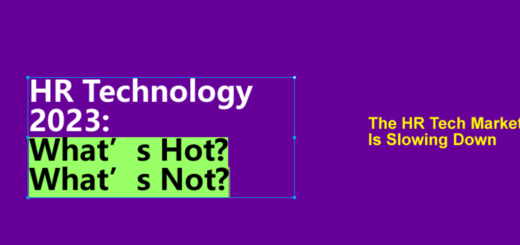Y Combinator’s Revenue Leaders: A Deep Dive into the HR Tech Landscape
The article explores the future trends and opportunities in the HR Tech domain based on the performance of HR Tech companies in Y Combinator’s list of top companies by revenue. Key players such as Checkr, Deel, Gusto, and Rippling are discussed. The article also emphasizes the potential of AI, machine learning, and data security in shaping the HR tech landscape.

Over the past few years, human resource (HR) technology has seen a significant surge, with numerous companies striving to streamline HR processes using innovative technologies. The recent Y Combinator’s list of top companies by revenue illustrates this trend, featuring several stand-out HR tech companies1.
Checkr, a company that provides “people infrastructure for the future of work,” is a key player that stands out in this domain1. Checkr’s solutions ease the process of employee background checks for businesses, reducing risk and presenting a more equitable handling of background check results. This is particularly beneficial for enterprises that need to perform extensive hiring.
Next up is Deel, which offers an all-in-one HR platform specifically designed for global teams1. Deel’s solutions simplify the management of international employee payments and compliance issues, a critical aspect for companies operating globally. The convenience brought by Deel’s product greatly alleviates the complexities associated with multinational employment.
Gusto, on the other hand, provides growing businesses with a comprehensive approach to take care of their team1. Offering an array of HR tools, including payroll, benefits administration, and compliance services, Gusto empowers small and medium businesses to better manage their workforce.
Rounding off this impressive lineup is Rippling, which “magically simplifies HR and IT”1. With a platform that enables companies to manage all employee data and IT services in one place, Rippling significantly enhances efficiency and minimizes the likelihood of errors.
These HR tech companies, each in their unique way, are innovating within the industry, aiding businesses in overcoming various HR management challenges. They underline a broader trend in HR tech – the shift towards a more data-driven, automated, and user-friendly approach.
Looking ahead, several trends seem to be shaping the future of HR tech.
Firstly, the integration of artificial intelligence (AI) and machine learning (ML) in HR processes is on the rise. These technologies can aid in areas such as talent acquisition, where AI can help screen resumes and predict candidate success, and employee engagement, where ML algorithms can analyze survey data to provide insights into employee satisfaction.
Secondly, the increased emphasis on employee experience is driving the development of more intuitive and user-friendly HR tech platforms. As remote work becomes more prevalent, the need for virtual HR tools that can replicate in-person interactions is becoming increasingly crucial.
Lastly, the importance of data security in HR tech cannot be overstated. With the volume of sensitive employee data that HR departments handle, HR tech companies must prioritize data security and compliance with regulations such as GDPR.
In conclusion, the HR tech sector is ripe with opportunities for innovation and growth. As businesses continue to recognize the value of efficient and effective HR management, demand for these technologies will likely continue to rise. The companies highlighted in the Y Combinator’s list serve as prime examples of the potential within this sector, leading the charge in transforming the future of HR.

